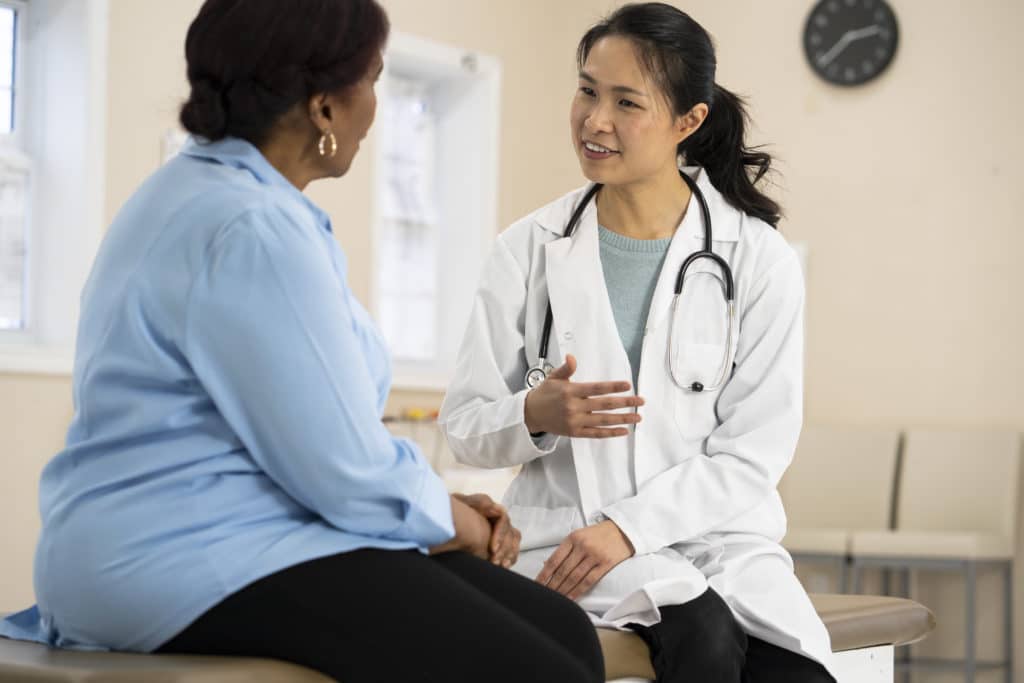The Risks And Benefits Of HRT
There’s been a lot of controversy about hormone replacement therapy and breast cancer. It is complicated.
There are a lot of reasons to expect that hormone replacement therapy slightly increases the risk of a woman developing breast cancer, so it’s probably a bit much to say that HRT causes cancer, but we could say that HRT might be a partial cause of some cancers.
So the way we would translate that into the real world is that we’d say, “If you’re going through menopause and you’re having a lot of very troublesome menopausal symptoms, hot flushes and things like that, and that’s really interfering with your life, then it’s not unreasonable to be on some hormone replacement therapy, but the aim should be to be on the lowest possible dose that helps you, and to be on it for as little time as possible or to try to wean off it after a year or two.”
I think the blanket idea that you should never have HRT because it will be a disaster is going too far. However, studies have made us change our view. 20 or 30 years ago, some people had the view that all post-menopausal women should be on HRT because there would be a lot of health benefits from that, and the studies that have been done have shown that’s not the case.
It does likely slightly increase your risk of breast cancer, but it can also have an impact on other things like heart attacks and strokes.
Listen to the podcast
Associate Professor Nicholas Wilcken discusses some of the risks and benefits of hormone replacement therapy, and why it’s important that women also discuss their symptoms with their doctor.
In your fifties when you’re going through menopause, and you’ve got a lot of hassles and symptoms associated with that, that’s a perfectly reasonable thing to do, but you don’t really want to be on HRT for 10 or 15 years.
Lastly, I’d add that if you’ve had breast cancer, you probably do not want to be on HRT even if you’ve got really bad hot flushes, but that’s something that you definitely need to talk to an oncologist about, don’t make that decision on your own.
Although we focus a lot of thought about how to find the cancer, the operation, and sometimes for those who need it the chemotherapy which is unpleasant, an important part of breast cancer treatment is the hormone-blocking treatments like tamoxifen and the other drugs called aromatase inhibitors. They’re very effective but to be most effective you need to be on them for many years. I see a lot of that because, luckily, those women stay well and alive for decades and most of them never die of breast cancer at all, so I see a lot of them in the clinics.
Potential Side Effects Of Hormone Replacement Therapy
These drugs are very effective but they potentially cause quite a lot of side effects, so one of the things that I think a lot about and spend a lot of time trying to help is those gynaecological/menopausal side effects – hot flushes, vaginal discomfort, problems with sex – which are partly related to those tablets that we still want you to take because they’re the thing that’s stopping the breast cancer from coming back, or they may be related to the fact that you had some chemotherapy that brought on the menopause.
Discussing Hormone Replacement Therapy With Your Doctor
I think that’s something which, as doctors in the past, we probably haven’t done that well. Probably particularly male doctors, I suspect, that have been too scared to ask about some of those side effects. I’ve certainly noticed in my practice that I ask about that a lot more and spend more time trying to work out how to make that better.
When I was in my mid to late thirties, and I was first practicing as a specialist, I was probably pretty nervous about asking about sexual activity or vaginal discomfort. I guess with increasing oncology experience and life experience, I’m much more comfortable about that. I think, although you’d have to ask the women that I’ve spoken to, that when you feel more comfortable about it you generate a certain calmness and confidence so that the woman is not too fussed about you asking about it, in fact, is quite grateful that you’ve asked about it because no-one else has.
I find that’s an important part of my job to educate the younger doctors that are working with me and tell them about that and explain to them how important that is because chemotherapy is not nice, but at least it’s all over in six months, whereas you might be on these pills for many years. I should emphasise that many people don’t have side effects at all, but those that do – as doctors we do them a disservice if we don’t ask them about these things and at least see what we can do to help them.
For more information, visit the NSW Cancer Council link: https://www.cancercouncil.com.au/754/cancer-information/cancer-research-cancer-type/latest-research/cancer-council-new-south-wales-combined-hormone-replacement-therapy-and-cancerfact-sheet/
Support Us
Help us to change lives through breast cancer clinical trials research



